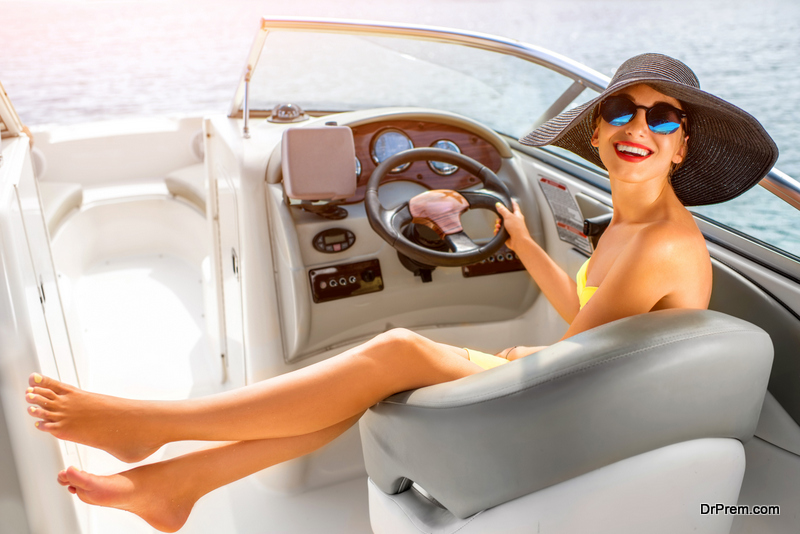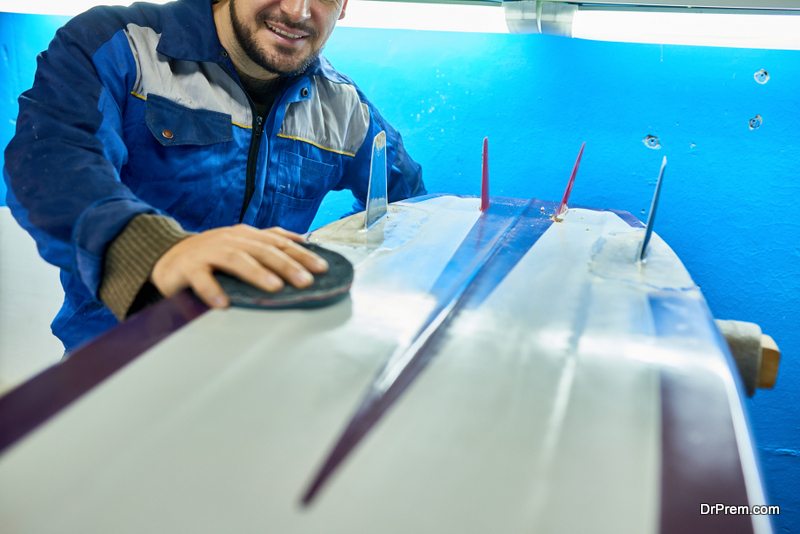When it comes to eco-friendly living, boating isn’t the first thing most people think to address. However, when you consider that thousands of recreational vessels are in lakes, rivers, and oceans at any given time, it’s easy to see how small changes can make a big difference.
5 Tips for Green Boating
For the most part, yachting and most forms of modern boating are not, by definition, eco-friendly. Any time you put a gasoline-powered vessel into a natural water system, you’re creating some degree of disturbance. However, there’s ample room for improvement. Boating doesn’t have to be a destructive sport, hobby, or mode of transportation. When approached with purpose, green boating is both possible and practical. Here are some suggestions:
Invest in Preventative Maintenance
Too many boaters get in the bad habit of showing up at the marina, getting in their boat, cranking it up, and going out into the open water. Unfortunately, they never take the time to inspect key systems and identify potential issues before they become problems. This results in untimely breakdowns and malfunctions that may actually cause damage or pollution to the water.
The best thing a boat owner can do is get in the habit of inspecting key systems and investing in preventative care to fix issues before they lead to breakdowns. Preventative engine maintenance is especially important and will save a boat owner thousands of dollars over the life of ownership.
Clean With a Purpose
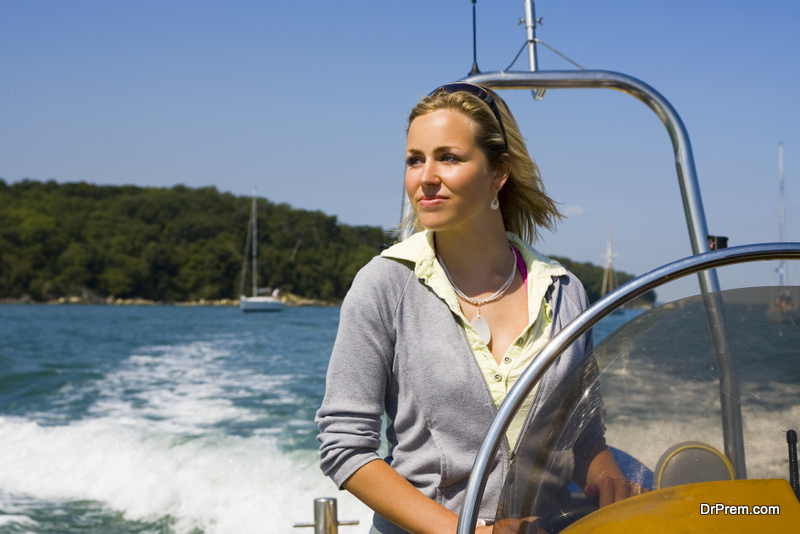 How you clean your boat may seem like an issue of personal preference, but it actually impacts the environment in some subtle, yet important ways.
How you clean your boat may seem like an issue of personal preference, but it actually impacts the environment in some subtle, yet important ways.
Not only should you be cleaning regularly in order to prevent premature damage, which leads to intensive repairs and wasted resources, but you need to be smart about how you clean. In particular, be sure to use non-toxic products that are safe for the water when cleaning your boat’s exterior.
Manage Waste Appropriately
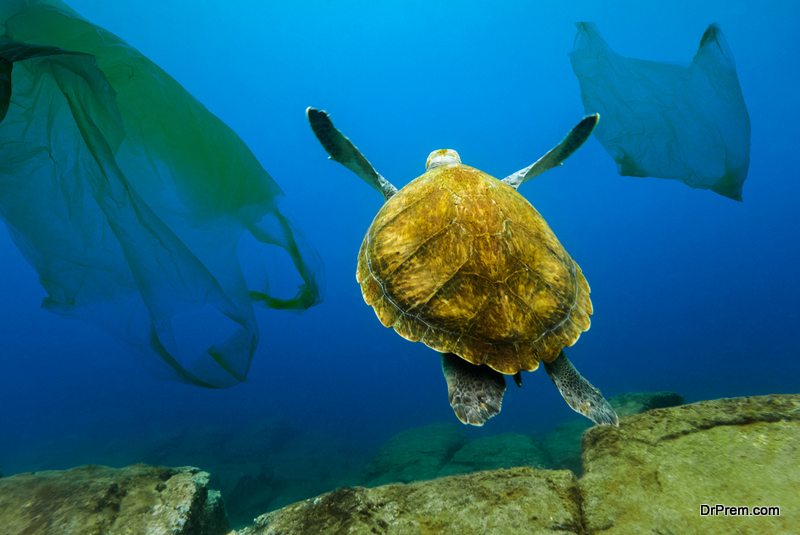 If you collect human waste on board your boat, you must follow the rules and properly dispose of it.
If you collect human waste on board your boat, you must follow the rules and properly dispose of it.
“It is illegal to dump raw, untreated sewage in any body of water that is navigable and within three miles of the shore or inland waters like lakes, rivers, and ponds,” Mobox Marine explains. “Some areas even prohibit the dumping of treated sewage; these are called No Discharge Zones and they can be found by checking with the Environmental Protection Agency’s master list.”
In terms of how you deal with the storage of human waste on your boat, consider installing a composting toilet. This eliminates the need for a holding tank for waste and doesn’t require you to deal with the nasty process of pumping it out.
Avoid Oil and Gas Spills
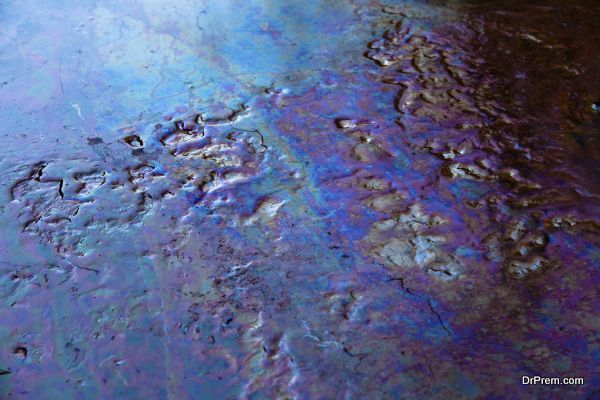 Research shows that as much as 85 percent of the 29 million gallons of petroleum that enter North American ocean waters every year are the result of human activities (including spillage and boating emissions). If you’re looking for a very tangible way to positively impact the environment, you can make a concerted effort to avoid spillage or leakage of oil in any amount.
Research shows that as much as 85 percent of the 29 million gallons of petroleum that enter North American ocean waters every year are the result of human activities (including spillage and boating emissions). If you’re looking for a very tangible way to positively impact the environment, you can make a concerted effort to avoid spillage or leakage of oil in any amount.
The best piece of advice is to only fuel your boat at the dock (and never in open water). Oil-absorbent rags and mats should be used to safely catch any oil that may leak. Cracks, fissures, and other discrepancies that can cause leaks in your gasoline holding tank should be repaired as soon as they’re identified.
Limit Idling
One of the worst things you can do when operating a boat is to leave it idling for long periods of time. This leads to excessive petroleum emissions in a concentrated area and can cause long-term damage to the local marine ecosystem. If you’ll be staying in an area for any period of time, it’s best practice to kill the engine.
Making Green Boating the Norm
 As with any major green movement, progress starts with one boater here and one boater there making smart, conscientious decisions. But in order for real results to come, we need thousands of boaters working together and making a collective commitment to protect the marine ecosystems that we all love so much. Will you be part of the change?
As with any major green movement, progress starts with one boater here and one boater there making smart, conscientious decisions. But in order for real results to come, we need thousands of boaters working together and making a collective commitment to protect the marine ecosystems that we all love so much. Will you be part of the change?
Article Submitted By Community Writer


